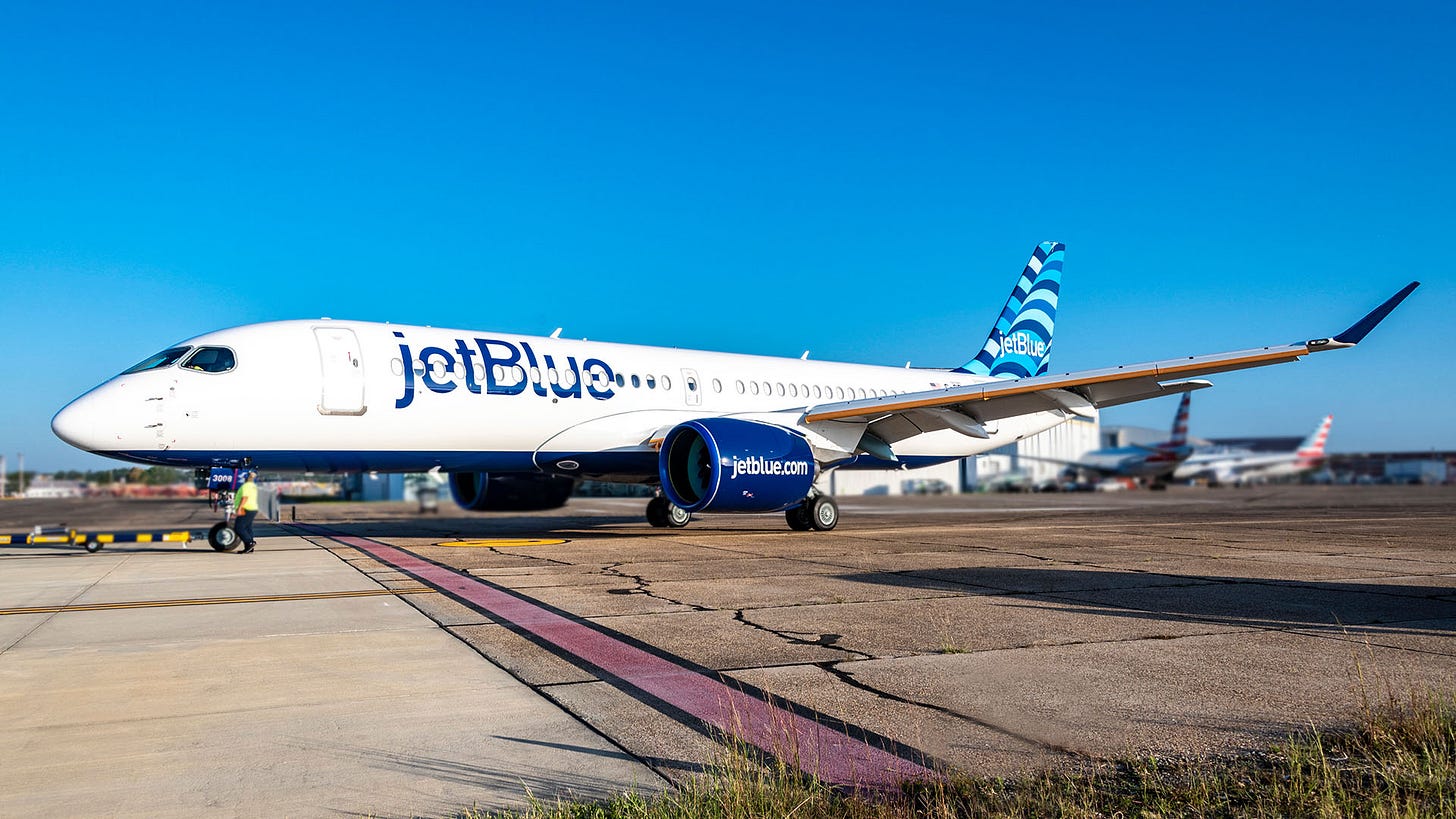The Northeast Alliance is No More
American and JetBlue teamed up to challenge United and Delta in New York and Boston. A federal judge ruled Friday that the tie-up is illegal.
Dear readers,
As airline people, you know American Airlines neglected New York for years,1 letting Delta and United build share and scale. You also know that JetBlue, despite its warm and fuzzy brand, is tiny compared to its larger competitors, even in its home market of New York. Even from its biggest focus city at JFK, it operates just a few long-haul routes and barely flies to the middle of the country.
You might reasonably conclude consumers would benefit if United and Delta had more competition in New York. Perhaps the same could be said about Boston, where JetBlue faces an aggressive competition from Delta, though JetBlue’s position there is stronger than in New York.
This was the philosophy of the Northeast Alliance between JetBlue and American — an attempt at a viable third competitor to Delta and United in New York, and a greater threat to Delta in Boston. American and Delta introduced their Northeast Alliance in 2020, an agreement to pool resources and share some revenues in Boston and New York (at Newark, LaGuardia and JFK airports). They began implementing it in early 2021.
But as the U.S. Department of Justice alleged in a lawsuit filed in September 2021, and as a federal judge made clear in a decision Friday, antitrust laws have no carveout that allow two airlines to operate a joint business because they wish to challenge two other competitors. By effectively becoming one entity in Boston and New York, the two carriers broke the law, Judge Leo T. Sorokin of the U.S. District Court for the District of Massachusetts wrote in a 94-page decision. The airlines must dissolve their alliance within 30 days.
"Essentially, American and JetBlue defend their partnership by broadly urging that ‘bigger is better,’ and by claiming that they will be able to match or overtake (or, as they say, ‘compete with’) Delta only if they are permitted to stop competing with one another,” Sorokin wrote in his decision. “That is not the kind of ‘competition’ valued and protected by the Sherman Act. Federal antitrust law does not concern itself with which competitor wins the largest share of a market.”
I spent much of Friday afternoon reading the decision. Here are six themes I found most interesting:
This kind of agreement had never been done before.
Even in off-the-record comments to me, airline executives are exceedingly careful when talking about their discussions with competitors. They know the rules. Under U.S. antitrust laws, airlines cannot coordinate with competitors on schedules, capacity, or pricing.
Yet American and JetBlue tried to do two of those three things — right in the open and without antitrust immunity, the decision says, pooling slots, coordinating on route planning, and sharing revenue in their "metal neutral" alliance. As Sorokin made clear, no airlines had tried anything similar; U.S. airlines rarely go beyond code sharing and reciprocal loyalty benefits in alliances with other domestic carriers.
"There is no evidence that any domestic airlines have formed relationships involving revenue sharing, pooling of slots and gates with joint decision-making about their use, allocation of markets, coordination of schedules, or broad efforts to operate as one airline in a substantial region of the country," Sorokin wrote. "At least, that was the case until American and JetBlue formed the NEA."
The only major rule the two airlines did not break was pricing — the biggest no-no in the business. "Though American and JetBlue do not discuss the fares they will set, they otherwise strive to provide a seamless product by operating, as much as they can, as a single airline would," Sorokin wrote.





